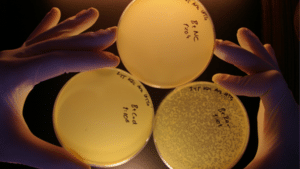According to Wageningen University & Research (WUR), it’s generally agreed upon that Common Agricultural Policy (CAP) needs to be revised. Most stakeholders emphasize the need for sustainability instead of a focus on agricultural productivity.
“The entire food chain needs to be able to cope with the challenges of the coming decades,” says Louise Fresco, WUR president of the Executive Board. “We need an integrated food policy that coherently governs and optimizes the entire biocycle from farm to fork, from seed to meat.”
This is needed to cope with five major challenges of society: food and nutrition security and safety, climate change and water and energy use, ecological impacts, healthy diet for a lifelong healthy lifestyle and inequality. These challenges cannot only be solved by the farmers, but also need the commitment and behavioral change of all the other players in the food chain, including the consumer — from breeding to eating.
WUR expects solutions will come from five major innovation areas: genetics, digitalization and big data, energy and biobased transitions, chain redesign and social innovation. This will change agriculture and the food chain in the years ahead. Which means, according to WUR, that an agricultural policy should give way to a more integrated agriculture and food policy.
Currently the CAP consists of two pillars. The first pillar enhances farm income and fosters market stability, while the second pillar concerns rural development, competitive position and innovation. The new policy should govern the resilience of the whole food chain and stimulate the interaction between consumption and production.
“We need a policy that addresses the consumer concerns on the food chain and admits that the actors in the food chain are much bigger than in the past, including most farms,” says Krijn Poppe, research manager and senior economist at Wageningen Economic Research. “‘One size fits all’ will not do in a more complex Europe; to keep it simple and affordable we need a combination of several targeted instruments.”
WUR suggests five new pillars for a successful Common Agriculture & Food Policy. Agriculture, food, landscape and the related environment are not a standard economic sector; the commitment of all stakeholders in society is essential and must be based on a solid understanding of how farming and food production work. Five pillars may seem to make things more difficult, but would actually making things clearer.
The people-planet-profit concept of sustainability could be used to design the first three pillars that are derived from the current CAP: there would be a pillar on income support & risk management designed to guarantee food security, a pillar on public issues & eco-system services that are not realised in imperfect markets, and a pillar on rural development to support innovation & the quality of rural life. These pillars mainly address farmers and the industries up- and downstream (input industry and food processing). A fourth pillar would deal with consumer food policy and address consumers, retail and food industry to make our diets healthier and more climate-smart. The fifth pillar should be devoted to monitoring, reflection and research.













